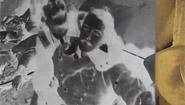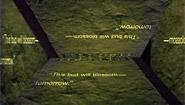Miriam Hansen
Miriam Hansen
Miriam Bratu Hansen was born in Offenbach Germany in 1949 and received a doctorate in American literature from Johann Wolfgang Goethe-Universität in Frankfurt. She then went on to teach at Yale University and Rutgers before moving to the University of Chicago, where she served as the Ferdinand Schevill Distinguished Service Professor in the Humanities and founded the Department of Cinema and Media Studies. During much of her career, Hansen worked on projects and was in constant contact with Alexander Kluge.
Miriam Hansen first became widely known for her book Babel and Babylon: Spectatorship in American Silent Film (1991), which among other things provided the theoretical grounding for understanding filmmaking as a historically defined and shaped activity; as an activity which perforce necessitated the viewing of older films through the lens of the spectators for whom they were intended. She saw fans of Rudolf Valentino, for instance, as possibly forming what Alexander Kluge and Oskar Negt have defined as “an alternative public sphere” in order to express and realize their desires. Hansen focused in particular on cinema as a mode of modernism, coining the term “vernacular modernism” to explain how even the classical Hollywood cinema could be a popular form of modernism that served many cultures as a horizon for coming to grips with modernity.
Finally, Hansen was also a scholar of the Frankfurt School and a prominent interpreter of the theories of Theodor Adorno, Walter Benjamin, and Siegfried Kracauer on cinema and mass culture, three figures whose theoretical writings on culture and media are the central focus of her final book entitled Cinema and Experience (2012). Miriam Hansen died in Chicago of cancer on 5 February 2011 at the age of 61. Her colleague at the University of Chicago, Professor Tom Gunning, summed up her impact on Cinema Studies as having “provided the best of models for film studies at the moment that it moved from its pioneering focus on Grand Theory to a broader sense of a field that must include archival research, political perspectives, aesthetic awareness and theoretical ambition.”





